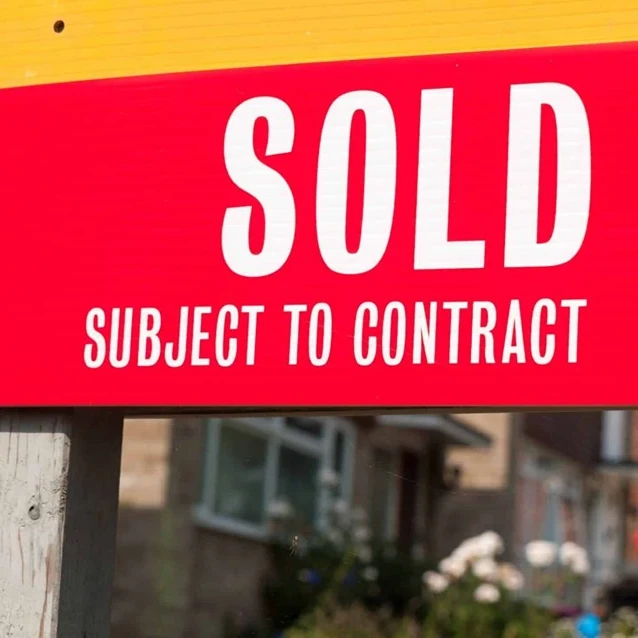Embarking on the property journey in Scotland? Understanding the closing date in Scottish property sales is crucial for a seamless transaction. Dive into the ins and outs of setting, adhering to, and debunking myths around this pivotal milestone, ensuring your responsibilities are clear as the horizon over the Highlands.
What Should Sellers Understand About Closing Dates in Scotland?
The closing date in the context of Scottish property sales is a set deadline for when all the offers from interested buyers are to be submitted. It’s a pivotal moment that kicks the competition into high gear, encouraging the best possible bid from each potential buyer. Typically, when a property garners a lot of interest, setting a closing date works in the seller’s favour, potentially driving up the property’s final sale price.
Sellers set a closing date by working with their estate agents, once they’re satisfied that there’s sufficiently strong interest in the property. It’s important for sellers to realise their responsibilities don’t end with setting the date; they must consider each offer carefully and transparently after the closing date has passed. A peek at Warners LLP’s insight on how closing dates work underscores this need for a fair and systematic approach to reviewing bids.
Some sellers might mistakenly believe they are guaranteed the highest price once a closing date is reached, but this is not always the case. The ultimate sale price can be influenced by market conditions, the desirableness of the property, and the financial status of the buyers—particularly the allure of “cash buyers” who don’t rely on mortgages or property sales.
When offers are made on a closing date, a seller is looking for several key elements:
- The offer price, with no clear-cut formula dictating the figures, just the highest amount the buyer is willing to pay.
- The date of entry, which tends to be 6 to 8 weeks after the offer is in.
- Clauses about mortgage approvals or the buyer’s need to sell their current property.
Furthermore, for any legal ties to be reliably formed, it is essential for buyers to engage a Scottish solicitor who is well-versed in the practices unique to Scotland. Hastings Legal highlights the required local legal expertise for the successful sale or purchase of a property in Scotland.
Understanding the closing date process is crucial for sellers in the Scottish property market. They need to recognise their role in setting the date, their obligations to consider offers fairly, and common misconceptions which could impact the sale. For further clarity on the closing date process and seller responsibilities, explore the information provided by MyGov.scot and learn directly from the experts.
How Can Buyers Prepare for a Closing Date?
When approaching a closing date for property sales in Scotland, buyers must navigate several crucial steps to solidify their purchase. To start, buyers should engage in a thorough property search, which means scouring the market for the right home and becoming familiar with different areas and property types. Once settled on a potential new home, the following steps come into play.
Yes, having a mortgage in principle is crucial for buyers before a closing date. This not just demonstrates financial credibility but also positions the buyer as a serious contender, especially in competitive bidding situations. With a mortgage in principle, you show sellers and estate agents that you have provisional approval from a lender for a certain amount. This step speeds up the purchasing process post-acceptance of an offer, which can be critical when time is of the essence.
Why is having a Scottish solicitor crucial when buying property in Scotland? For those considering buying property solo in Scotland, the role of a solicitor becomes even more vital. Navigating the complexities of Scottish property law alone can be daunting, but with the right legal guidance, solo buyers can confidently manage their purchase, ensuring all legal requirements are met and the transaction proceeds smoothly. Simply put, Scottish property law has unique requirements and processes that differ from those in other parts of the UK. A solicitor with experience in Scottish law can navigate the legal intricacies of your purchase smoothly. The role of the solicitor is to carry out due diligence on the property and manage aspects such as submitting the offer, negotiating the terms of the sale, and concluding the contractual obligations to finalise the property transfer. As experts in local property law, Scottish solicitors ensure you meet all legal requirements and that your property transaction is conducted correctly.
For a fruitful property search, it’s essential to use resources like Hastings Legal and ESPC that offer access to a wide range of properties and valuable information about the Scottish property market. When making an offer, buyers should also take into account the critical need for clarity on their financial situation. Offers that are contingent on selling your current property, or obtaining a mortgage, should clearly state this. Such transparency may make your offer more attractive as it informs the seller of your circumstances and potentially avoids later delays.
Additionally, working closely with a Scottish solicitor can aid significantly in buyer preparations. They provide indispensable guidance on making your offer as strong as possible, understanding the potential for competitive bidding, and ensuring that all formalities, like noting interest with the selling agent, are dealt with promptly.
Remember, buyer preparations for a closing date should include researching the property market, securing a mortgage in principle, and partnering with a knowledgeable Scottish solicitor to navigate this critical phase in the homebuying journey.
What Happens After a Closing Date is Set?
After a closing date is set in the Scottish property market, sellers tackle the task of reviewing offers. This crucial step can be both daunting and definitive in achieving a successful sale. So, how do sellers sift through the submitted proposals?
Reviewing offers is the first step, which involves a careful assessment of each bid’s details after the designated closing date has passed. Offers often arrive through the seller’s solicitor, who plays a key role in both the pre- and post-closing date legal process. Each offer must be comprehensively examined to determine which one is the most favourable.
Sellers and their agents consider a multitude of factors: the offered price, buyer’s financial position such as being a “cash buyer,” the proposed date of entry, and any additional conditions. A cash buyer, unfettered by the need to secure a mortgage, is typically more desirable, reducing the risk of delays. Moreover, the clarity and completeness of an offer can heavily sway a seller’s decision. It’s paramount that all buyers entwine their offers with precision and transparency to showcase serious intent.
Once the seller accepts an offer, the legal baton is passed to conveyancing solicitors who shepherd the transaction through to completion. These post-closing date legal steps include validating and binding the sale, exchanging contracts, and finally, settling on a date of entry. Here, solicitors must meticulously navigate Scotland’s conveyancing terrain, ensuring each client is clear on their obligations and rights.
The need for fairness throughout this process cannot be overstated. A transparent approach, where all prospective buyers are provided clear instructions and equal opportunity, upholds the integrity of the property sale journey.
In sum, after setting a closing date, sellers must foster an equitable platform for all offers, evaluate each with a strategic eye, and upon acceptance, entrust the transaction to the intricate hands of legal process, propelling the sale towards a successful and equitable close.
How Can Delays Be Avoided During the Closing Date Process?
When zeroing in on closing day, everyone wants the key handover to zip along without a hitch. But how?
For starters, final property viewing must be ticked off the list well in advance. This last look-around is your opportune moment to spot any issues that could later derail the process. So, sellers, make sure your property is in tip-top shape to dazzle during this crucial viewing. Buyers, line up your visit to avoid any last-minute panic.
Moving on to property settlement procedures, it’s all about preparation and precision. Buyers, prep your paperwork, and tick off all the financial boxes pronto. Sellers, be on the ball with your legal obligations to keep things moving smoothly. Take a gander at the Law Society of Scotland’s guidance, it’s packed with nifty advice to navigate these waters.
Now, to crack avoiding delays – stick to your deadlines like glue and communicate like there’s no tomorrow. Make sure everyone involved knows the score and is on the same B-side. And remember, transparency is the secret sauce to a delay-free closing date.
Finally, although you’ve got your sights set on a hiccup-free finish line, sometimes delays are as unpredictable as Scottish weather. Stay flexible, keep a level head, and if a setback strikes, handle it with grace and agility.
What Legal Documents Are Involved in the Closing Date?
When gearing up for the big day in the Scottish property market—the closing date—understanding the legal documentation for property sales is crucial. For those poised to sell, it’s time to get your ducks in a row! So, what paperwork will you need at the ready?
First things first, the conveyancing timeline must be your bible as you navigate through the sea of legalese. Conveyancing is not a sprint; it’s a marathon. This period kicks off once an offer is accepted and stretches until every legal i is dotted, every t crossed. For a detailed roadmap, have a gander at Hastings Legal’s conveyancing guide.
Now, for the meat of the matter, sellers must compile a robust property sale agreement. This document is the heart of the deal, outlining terms, conditions, and the financial agreement between buyer and seller. It should cover everything from the price, the date of entry, and any special conditions of the sale. Miss nothing! Every quirk and crank of the home, any special conditions or warranties, must be transparent here.

Sellers, a top-tip: ensure every guarantee or statement about the property is documented clear as crystal. Your property sale agreement should be as watertight as a submarine’s hull, leaving no room for misunderstandings.
Looking at the conveyancing timeline, the importance of timely preparing all legal documentation cannot be over-emphasized. The property sale agreement, in particular, is a cornerstone of a successful property transfer. Delays or inaccuracies here can unravel what should be a well-oiled machine.
Keep in mind that conveyancing in Scotland follows its own unique beat, so familiarise yourself with the local rhythm, and you won’t miss a step. With a combination of due diligence and the right legal counsel, you can ensure a smooth journey from listing to handing over those keys. Don’t just cross your fingers; cross every ‘t’ and dot every ‘i’ so that when the closing date arrives, you’ll be singing all the way to the bank.
What Practical Advice Should Both Parties Consider on the Closing Date?
When the completion day is on the horizon, both buyers and sellers need to be in peak readiness for the transaction ahead. Sellers must prepare a checklist for completion day to ensure nothing is left to chance, while buyers should confirm their readiness for property handover. Let’s delve into some practical tips for a smooth closing date that will leave no room for last-minute scrambles.
For Sellers: Your Completion Day Checklist
What to prepare for the big day? As a seller, your agenda should include making sure all contractual terms have been met, and any required repairs have been completed. Leave the property clean and remove all personal belongings unless otherwise agreed with the buyer. Gather all necessary documentation, such as warranties for any appliances you’ve left behind and instructions or manuals that will aid the new owner.
Ensure meter readings are taken on the day of the handover so that utilities can be accurately transferred to the new owner. Handing over keys should be coordinated with your solicitor to align with legal completion. Finally, confirm your own moving out arrangements to avoid any overlap with the buyer moving in.
For Buyers: Are You Ready for Handover?
As a purchaser, confirm that all financial arrangements are in place and your payment is ready to be transferred. Visit ESPC or S1homes to double-check any last-minute details about the property. Conduct a final walk-through, if possible, to ensure the property is in the agreed condition.
On the property handover day, have insurance ready to go from day one. This is vital, as you become responsible for the property once the keys are handed over. Be in close communication with your solicitor to know exactly when the keys can be collected — which can often be midday or early afternoon.
Practical Tips for Both Parties
Maintain clear communication throughout the process; this reduces the risk of misunderstandings and ensures that everyone is aware of their responsibilities and the timeline. Buyers should be prepared to be flexible; while the date of entry is typically 6 to 8 weeks from submitting an offer, this can sometimes change.
Remember, whether you’re a buyer or a seller, having a legal professional who understands the nuances of the Scottish property market is invaluable. They can offer guidance through each step of the closing date process, help you understand any jargon, and provide resources such as a free property valuation or buying/selling quotes.
By respecting these practical tips, both sellers and buyers can look forward to a closing date that’s free from headache and disappointment. With thorough preparation, attention to detail, and open lines of communication, you’ll foster an environment where everything can proceed smoothly and efficiently.
Conclusion
Navigating the intricacies of the closing date in Scotland’s dynamic property market is a critical step for sellers and buyers alike. From understanding sellers’ obligations and setting realistic expectations to preparations buyers must undertake, this blog post has unpacked the complexities tied to each stage of the journey. It’s clear that a well-informed approach, aligned with legal requirements and aided by professional advice, is essential for a seamless transition.
Whether you’re reviewing offers, preparing legal documents, or ensuring readiness for property handover, remember that attention to detail can markedly reduce the likelihood of delays. By following the guidance outlined, both parties can move towards a successful property sale with confidence, knowing that due diligence can lead to a fair and stress-free conclusion. With the right strategies and a solid grasp of the process, buyers and sellers can navigate closing dates with a sense of clarity and control, paving the way for a positive outcome in the Scottish property market.
FAQ
Q: What exactly is a closing date in the context of Scottish property sales?
A: In Scottish property sales, the closing date represents a deadline for receiving all offers from interested buyers. It intensifies competition and can boost the property’s final sale price.
Q: How should sellers prepare for the closing date in the Scottish property market?
A: Sellers should coordinate with their estate agents to set an effective closing date, fairly consider all offers after the date passes, and be aware that the highest price isn’t guaranteed—it depends on several factors, including market conditions and the type of buyers.
Q: What key factors do sellers evaluate when offers are made on a closing date?
A: When offers are received on a closing date, sellers look at the offered price, the proposed date of entry, and any clauses relating to mortgage approvals or the sale of the buyer’s current property.
Q: As a buyer, how can you best prepare for a closing date?
A: Buyers should conduct a comprehensive property search, secure a mortgage in principle to demonstrate financial credibility, and work with a Scottish solicitor experienced in local property law for legal guidance.
Q: What happens after a closing date is set for the property?
A: Post-closing date, sellers review all offers, considering factors like the price, buyer’s financial status, proposed entry date, and conditions. Following offer acceptance, legal steps include validating the sale and setting the entry date.
Robbie Jamieson
Robbie’s passion for real estate extends beyond the conventional, bringing fresh and dynamic ideas to the table. His expertise in leveraging online platforms ensures that your home receives the attention it deserves in today’s competitive market.
Related Posts
Can You Fix an Unmortgageable House
August 29, 2024
Struggling with unmortgageable property? Find out what makes a property hard to finance and how to navigate the sale process effectively.
How Much Does Subsidence Devalue Property
August 21, 2024
Concerned how much subsidence could devalue your property? Get expert insights on the financial impact and solutions in our guide.
How Long to Sell a House? Quick Sale Insights
August 20, 2024
Curious about how long it takes to sell a house? Read on for expert insights and guidance on the Scottish market.
How Many Viewings to Sell a House
August 16, 2024
Ever wondered how many viewings to sell a house quickly? Get statistics, tips, and strategies for a swift UK property sale.
What Does Sold STC Really Mean for Your Sale
August 15, 2024
Curious about ‘Sold STC’ meaning? Our blog demystifies the term for buyers & sellers navigating UK property sales.
Selling a House Over a Mine Shaft? What You Need to Know
August 9, 2024
Selling your house with a mine shaft? Get expert tips on value assessment, legalities & buyer reassurance. Navigate mine shaft property sales with confidence.
Can You Sell a Leasehold Property Easily
August 2, 2024
Wondering if you can sell a leasehold property in Scotland? Get expert tips on the process & legalities to sell with ease and confidence.
Can You Sell a House with a Mortgage Easily
July 23, 2024
Curious if you can sell a house with a mortgage? Get the facts on legalities and logistics in our latest post.
How Long Does It Really Take to Sell a House
July 15, 2024
Wondering what is the average time to sell a house in Scotland? Get the facts and strategies for a quick sale with our guide.
Do Bungalows Sell Quickly? The Data Will Shock You
July 12, 2024
Wonder if bungalows sell quickly? Our latest post delves into the Scottish market, with tips to expedite your sale.















